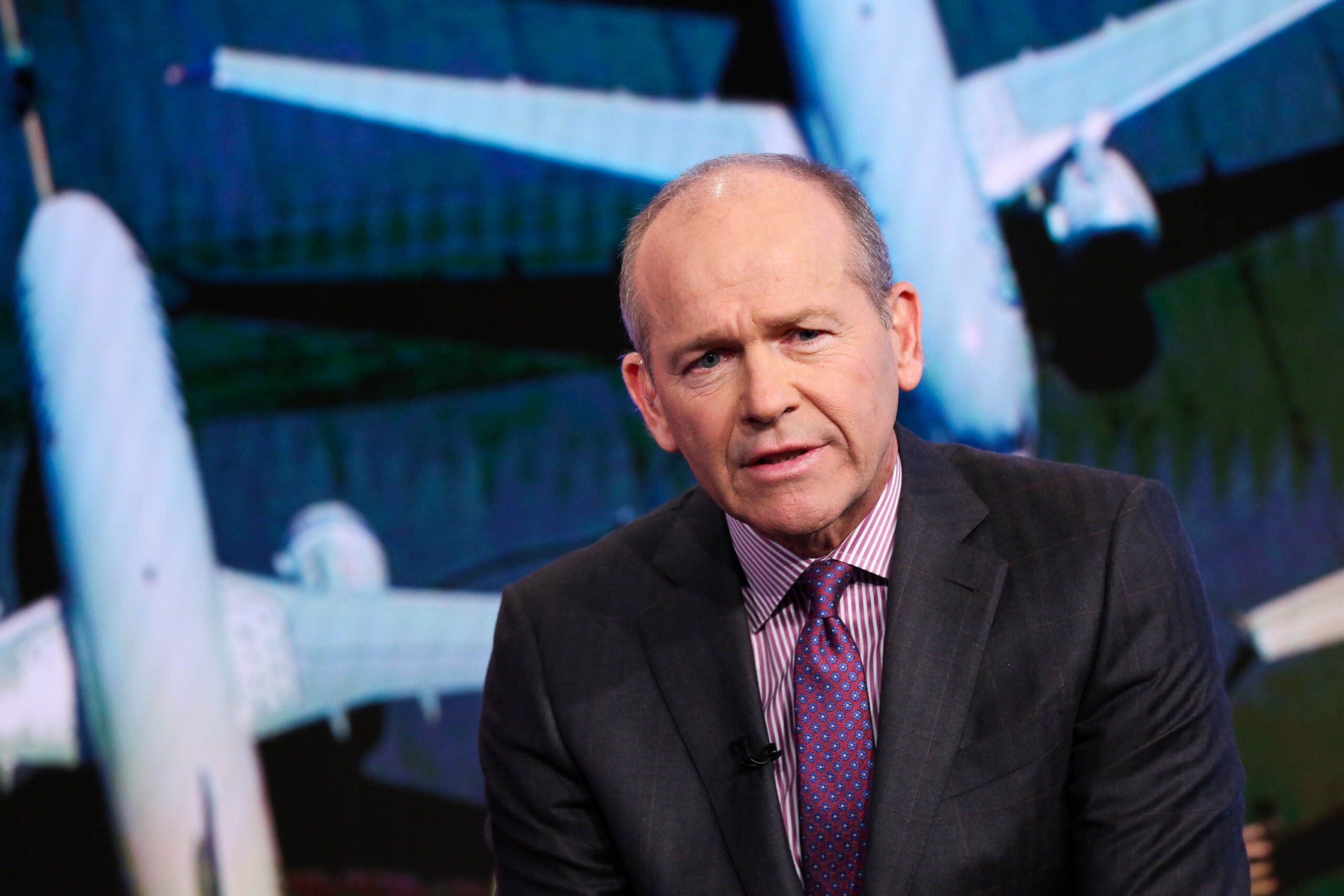In a significant reshuffle at Boeing, CEO Dave Calhoun announced he will step down by the end of the year amid a deepening crisis for the aerospace giant, spotlighted by a recent safety incident involving a 737 MAX plane.
The move is part of a broader shake-up that includes the departures of board chair Larry Kellner and Stan Deal, the head of Boeing’s commercial planes division.
These exits come as the company grapples with a series of setbacks that have undermined confidence in its operations and its products.
The tipping point for this management overhaul was a panel blowout on a 737 MAX in January, just one of many issues the company has faced, complicating its efforts to ramp up production and restore its reputation.
Calhoun, 66, who took the helm following two devastating crashes in 2018 and 2019, has been under intense scrutiny.
Despite initial support from airline executives following the January incident, frustration grew over further delays and regulatory findings of quality lapses at Boeing’s main manufacturing site.
Investors have expressed skepticism about the effectiveness of these leadership changes.
“Boeing has had massive problems for years and he has not been able to fix those problems,” Adam Sarhan, CEO of 50 Park Investments, remarked on Calhoun’s tenure.
“The company’s stock has suffered, losing about a quarter of its value since the January mishap, even as it navigates regulatory challenges and seeks to bolster its supply chain by acquiring Spirit AeroSystems.
The reshuffle has been met with approval from some quarters, including Michael O’Leary of Ryanair, who described the changes as “much-needed.”
Calhoun himself told CNBC, “It was me giving them notice that at the end of this year I plan to retire,” expressing his commitment to addressing the quality issues before his departure.
Stephanie Pope is set to take over Boeing Commercial Airplanes, with Steve Mollenkopf stepping in as the new board chair, leading the hunt for Calhoun’s successor.
The leadership changes have raised questions about Boeing’s direction, with regulatory scrutiny uncovering significant flaws in its operational practices.
The NTSB’s findings on the January incident, lack of documentation for missing bolts, and the FAA’s decision to limit Boeing’s production have fueled concerns.
The company’s financial health is also under the microscope, with CFO Brian West indicating a higher than anticipated cash burn rate.
Calls for a cultural and managerial overhaul are growing louder, with stakeholders from various corners urging a comprehensive approach to rectifying Boeing’s systemic issues.
Ray Goforth of the Society of Professional Engineering Employees in Aerospace emphasized the need for the company to acknowledge and address its failures sincerely.
As Boeing embarks on this transitional period, the industry watches closely, hopeful for a turnaround that prioritizes safety and reliability above all.


